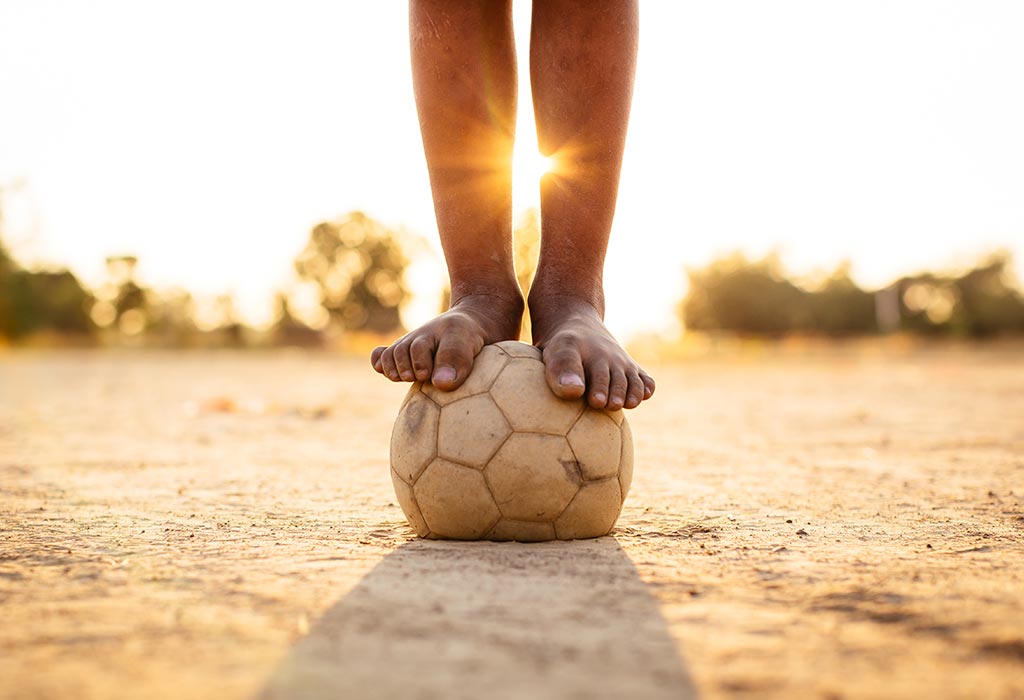In this Article
How children grow and develop depend on both internal and external environmental factors, some of which we have no control over. Having a good understanding of what children need at each stage of their growth and development helps us raise them better.
How Are Growth and Development Defined?
Although the terms growth and development are used synonymously, they have different meanings biologically. Growth refers to the incremental changes in physical characteristics such as height, weight, size, etc., while development refers to qualitative changes to growth in an orderly and meaningful fashion which results in maturity. Growth and development contribute to each other, are inseparable, and occur simultaneously. For example, most babies, by the time they grow up to be 8 months old, can weigh around 8 to 10 kilograms and can sit up.
10 Factors That Influence the Growth and Development of a Child
Nature and nurture both contribute to the growth and development of children. Although what’s endowed by nature is constant, nurture tends to make a big difference too. Here are a few factors affecting children’s growth and development.
1. Heredity
Heredity is the transmission of physical characteristics from parents to children through their genes. It influences all aspects of physical appearance such as height, weight, body structure, the colour of the eye, the texture of the hair, and even intelligence and aptitudes. Diseases and conditions such as heart disease, diabetes, obesity, etc., can also be passed through genes, thereby affecting the growth and development of the child adversely. However, environmental factors and nurturing can bring the best out of the already present qualities in the genes.
2. Environment
The environment plays a critical role in the development of children and it represents the sum total of physical and psychological stimulation the child receives. Some of the environmental factors influencing early childhood development involve the physical surroundings and geographical conditions of the place the child lives in, as well his social environment and relationships with family and peers. It is easy to understand that a well-nurtured child does better than a deprived one; the environment children are constantly immersed in contributes to this. A good school and a loving family builds in children strong social and interpersonal skills, which will enable them to excel in other areas such as academics and extracurricular activities. This will, of course, be different for children who are raised in stressful environments.
3. Sex

The sex of the child is another major factor affecting the physical growth and development of a child. Boys and girls grow in different ways, especially nearing puberty. Boys tend to be taller and physically stronger than girls. However, girls tend to mature faster during adolescence, while boys mature over a longer period of time. The physical structure of their bodies also has differences which make boys more athletic and suited for activities that require physical rigour. Their temperaments also vary, making them show interest in different things.
4. Exercise and Health

The word exercise here does not mean physical exercise as a discipline or children deliberately engaging in physical activities knowing it would help them grow. Exercise here refers to the normal play time and sports activities which help the body gain an increase in muscular strength and put on bone mass. Proper exercise helps children grow well and reach milestones on time or sooner. Exercise also keeps them healthy and fights off diseases by strengthening the immune system, especially if they play outside. This is because outdoor play exposes them to microbes that help them build resistance and prevent allergies.
5. Hormones
Hormones belong to the endocrine system and influence the various functions of our bodies. They are produced by different glands that are situated in specific parts of the body to secrete hormones that control body functions. Their timely functioning is critical for normal physical growth and development in children. Imbalances in the functioning of hormone-secreting glands can result in growth defects, obesity, behavioural problems and other diseases. During puberty, the gonads produce sex hormones which control the development of the sex organs and the appearance of secondary sexual characteristics in boys and girls.
6. Nutrition
Nutrition is a critical factor in growth as everything the body needs to build and repair itself comes from the food we eat. Malnutrition can cause deficiency diseases that adversely affect the growth and development of children. On the other hand, overeating can lead to obesity and health problems in the long run, such as diabetes and heart disease. A balanced diet that is rich in vitamins, minerals, proteins, carbohydrates and fats is essential for the development of the brain and body.
7. Familial Influence
Families have the most profound impact in nurturing a child and determining the ways in which they develop psychologically and socially. Whether they are raised by their parents, grandparents or foster care, they need basic love, care and courtesy to develop as healthy functional individuals. The most positive growth is seen when families invest time, energy and love in the development of the child through activities, such as reading to them, playing with them and having deep meaningful conversations. Families that abuse or neglect children would affect their positive development. These children may end up as individuals who have poor social skills and difficulty bonding with other people as adults. Helicopter parenting also has negative effects as they render children dependent on the parents even as young adults and unable to deal with difficulties in life on their own
8. Geographical Influences
Where you live also has a great influence on how your children turn out to be. The schools they attend, the neighbourhood they live in, the opportunities offered by the community and their peer circles are some of the social factors affecting a child’s development. Living in an enriching community that has parks, libraries and community centres for group activities and sports all play a role in developing the child’s skills, talents, and behaviour. Uninteresting communities can push some children to not go outside often but play video games at home instead. Even the weather of a place influences children in the form of bodily rhythms, allergies and other health conditions.
9. Socio-Economic Status
The socio-economic status of a family determines the quality of the opportunity a child gets. Studying in better schools that are more expensive definitely has benefits in the long run. Well-off families can also offer better learning resources for their children and they afford special aid if the kids need it. Children from poorer families may not have access to educational resources and good nutrition to reach their full potential. They may also have working parents who work too many hours and cannot invest enough quality time in their development.
10. Learning and Reinforcement
Learning involves much more than schooling. It is also concerned with building the child up mentally, intellectually, emotionally, and socially so they operate as healthy functional individuals in the society. This is where the development of the mind takes place and the child can gain some maturity. Reinforcement is a component of learning where an activity or exercise is repeated and refined to solidify the lessons learned. An example is playing a musical instrument; they get better at playing it as they practice playing the instrument. Therefore, any lesson that is taught has to be repeated until the right results are obtained.
Although nature contributes much to the growth and development of children, nurture contributes much more. As mentioned earlier, some of these factors may not be controllable, and you’ll have to make do with what you have. But there are certain things you can definitely ensure for your child. This includes ensuring that your child gets enough rest every day, because his development is heavily dependent on the amount of sleep he gets. Pay close attention to your child’s nutritional and exercise levels, as these too play an important role in promoting your child’s timely and healthy growth and development.








